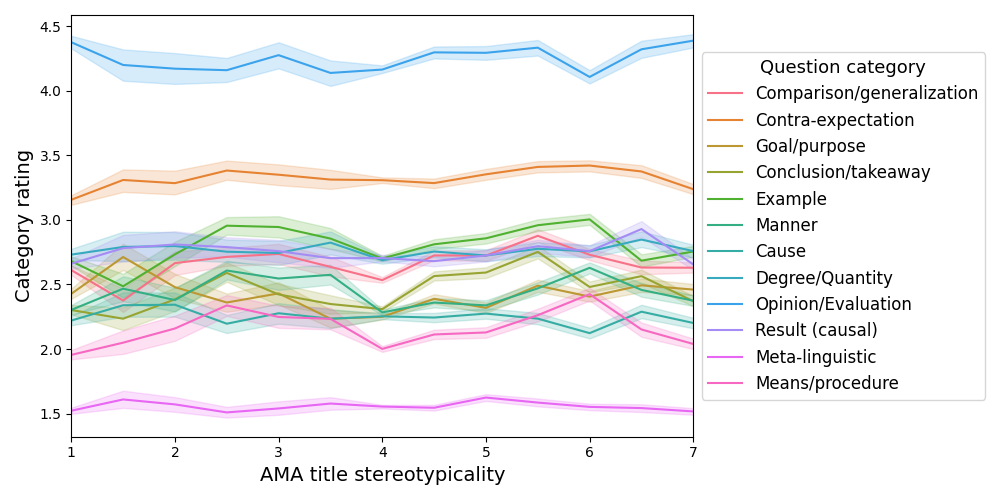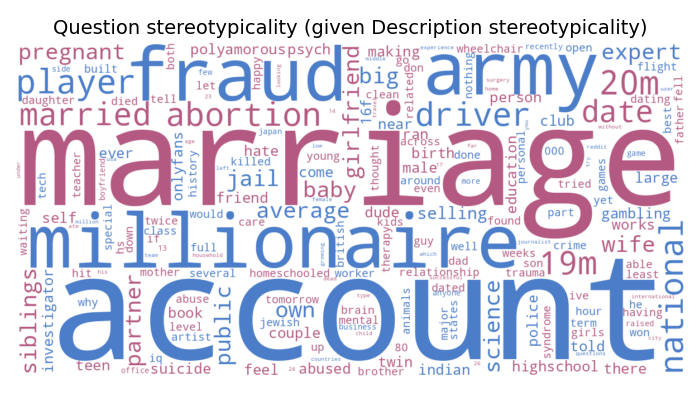Using questions on social media as a window on our collective curiosity.
Online media affect not only what we believe to be true or false, but also which questions we entertain, what we are curious or uncertain about. Such questions may, in turn, increase our vulnerability to disinformation: people more readily believe a lie if it answers a question they already had. This project used millions of questions posted on social media as a window onto our collective curiosity, to investigate, among other things, whether a surge in disinformation is preceded by changes in our curiosity.
Funded by NWO grant 406.XS.01.165.
Team
- Matthijs Westera (PI)
- Mark Alewijnse
- Fenna Berger
Output
- We presented our preliminary findings at Computational Linguistics in The Netherlands (CLIN34).
- We applied our framework to stereotypicality, and presented it at the conference Generics and stereotypes in discourse: a cross-disciplinary perspective!
Sneak preview about stereotypes in curiosity
The ‘gender stereotypicality’ (7 being very masculine, 1 being very feminine) of an Ask Me Anything post title, does not seem to affect the kinds of questions it recieves (at least these coarse-grained categories):

And here are some words that elicit stereotypically gendered questions (specifically: questions that are more stereotypical than one would expect based on the stereotypicality level of the words themselves!):
